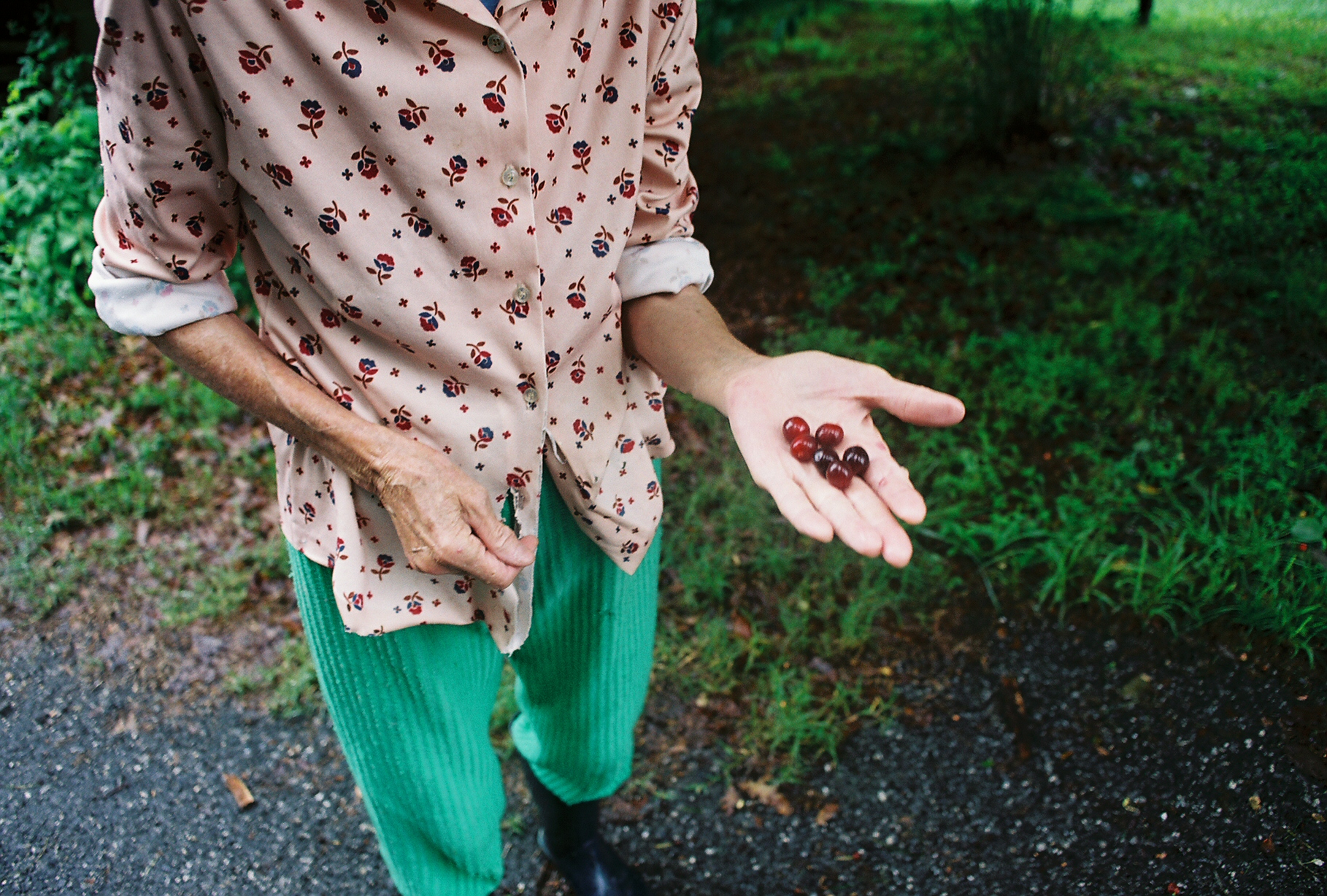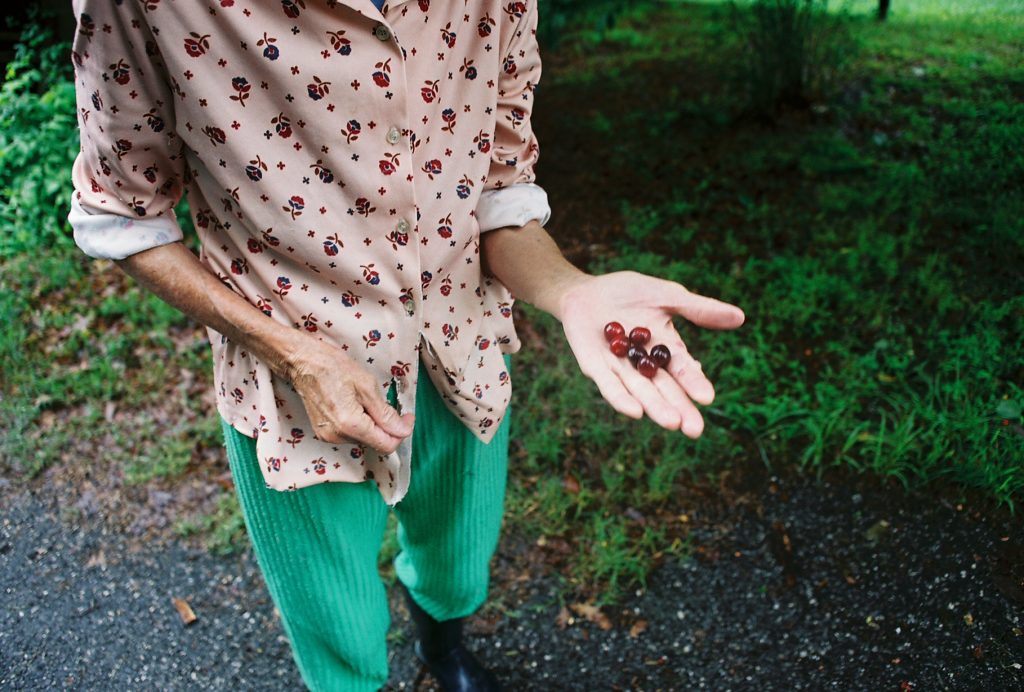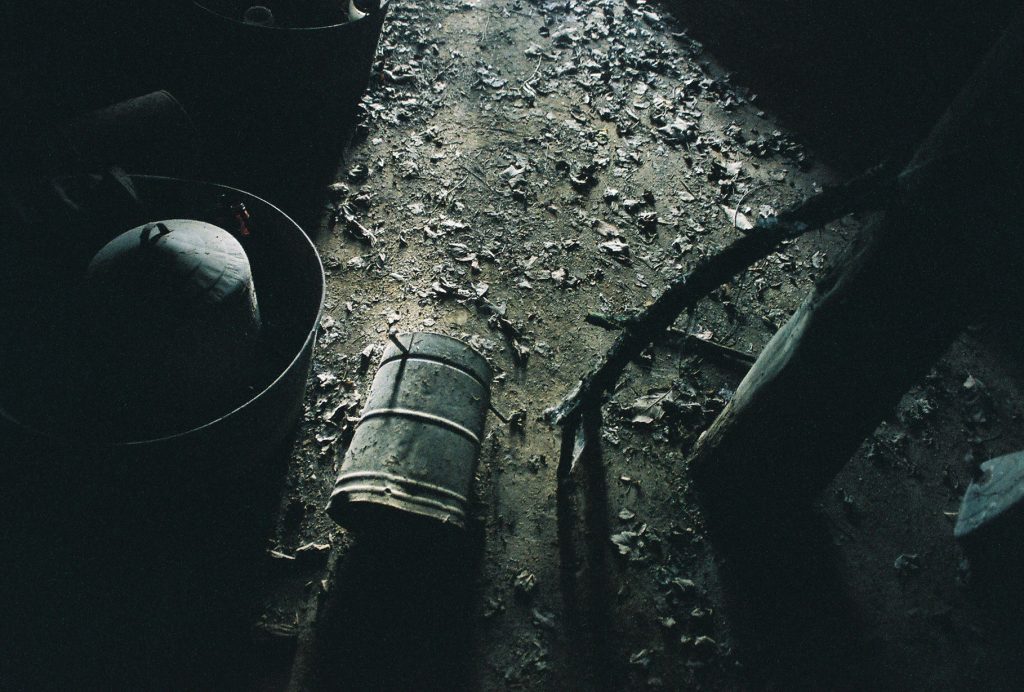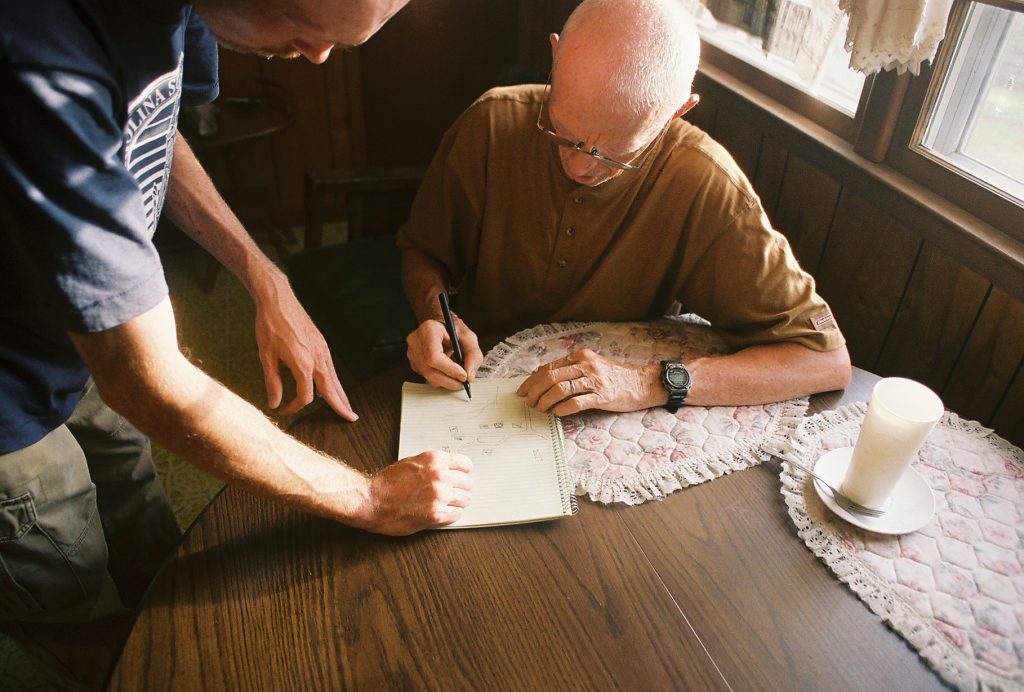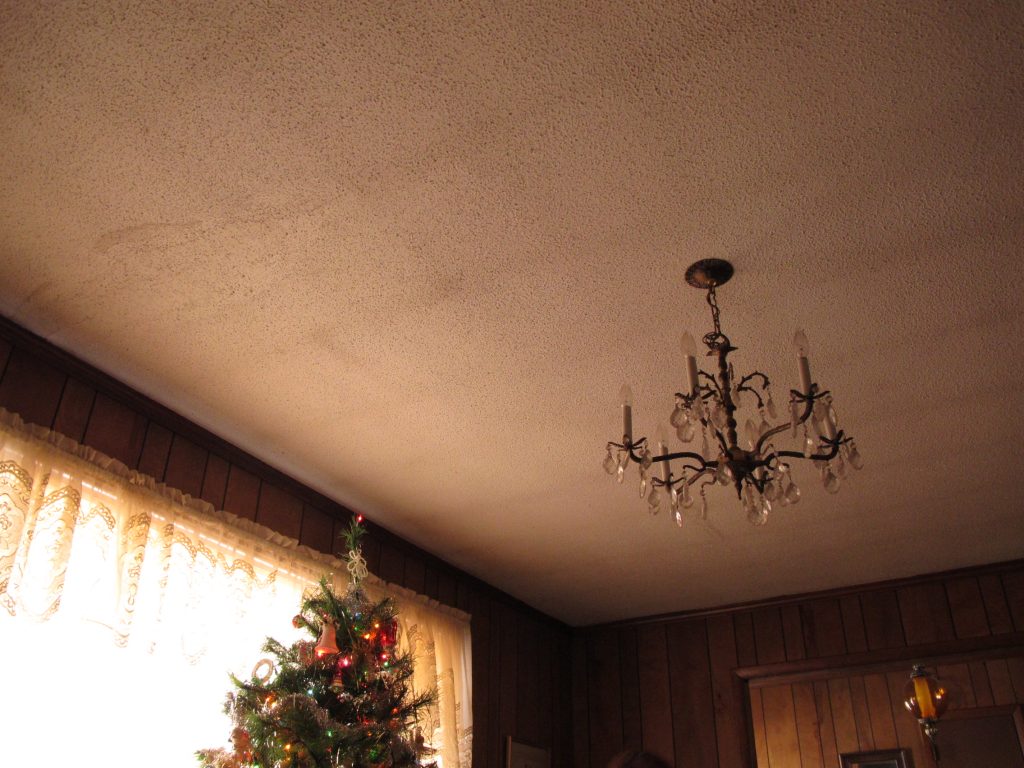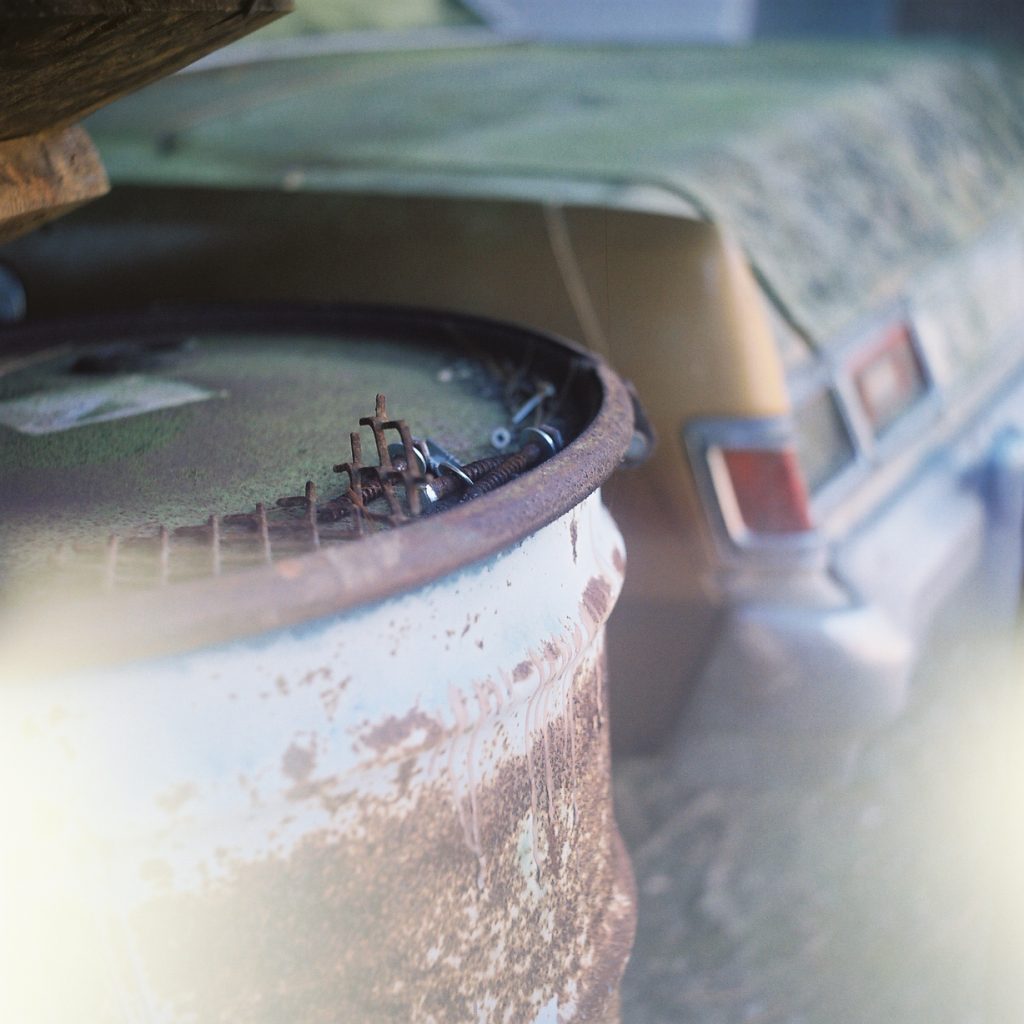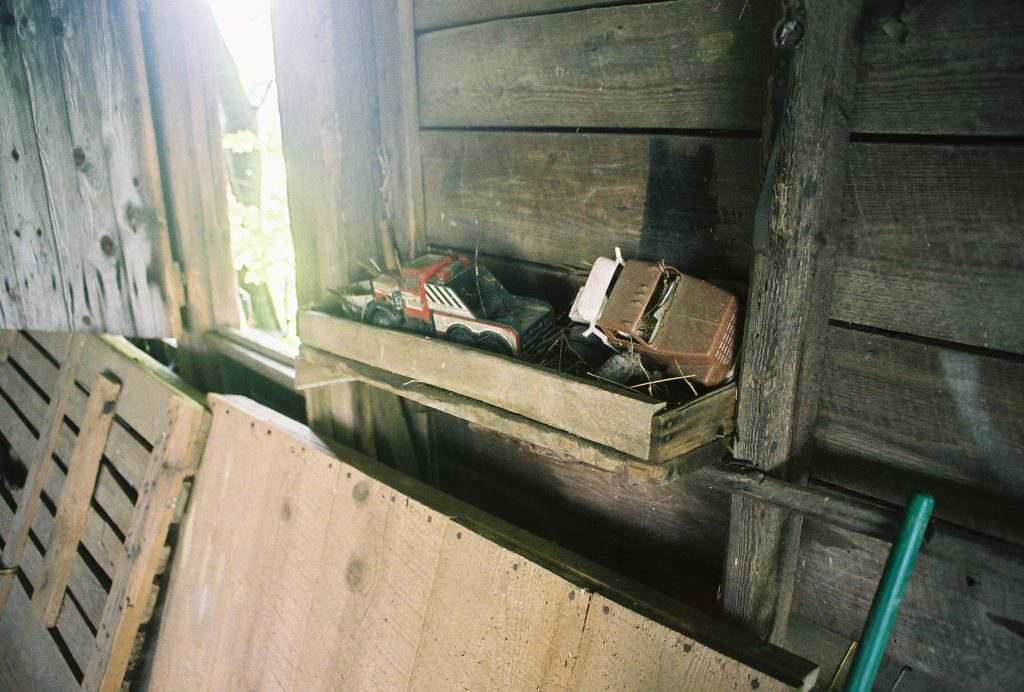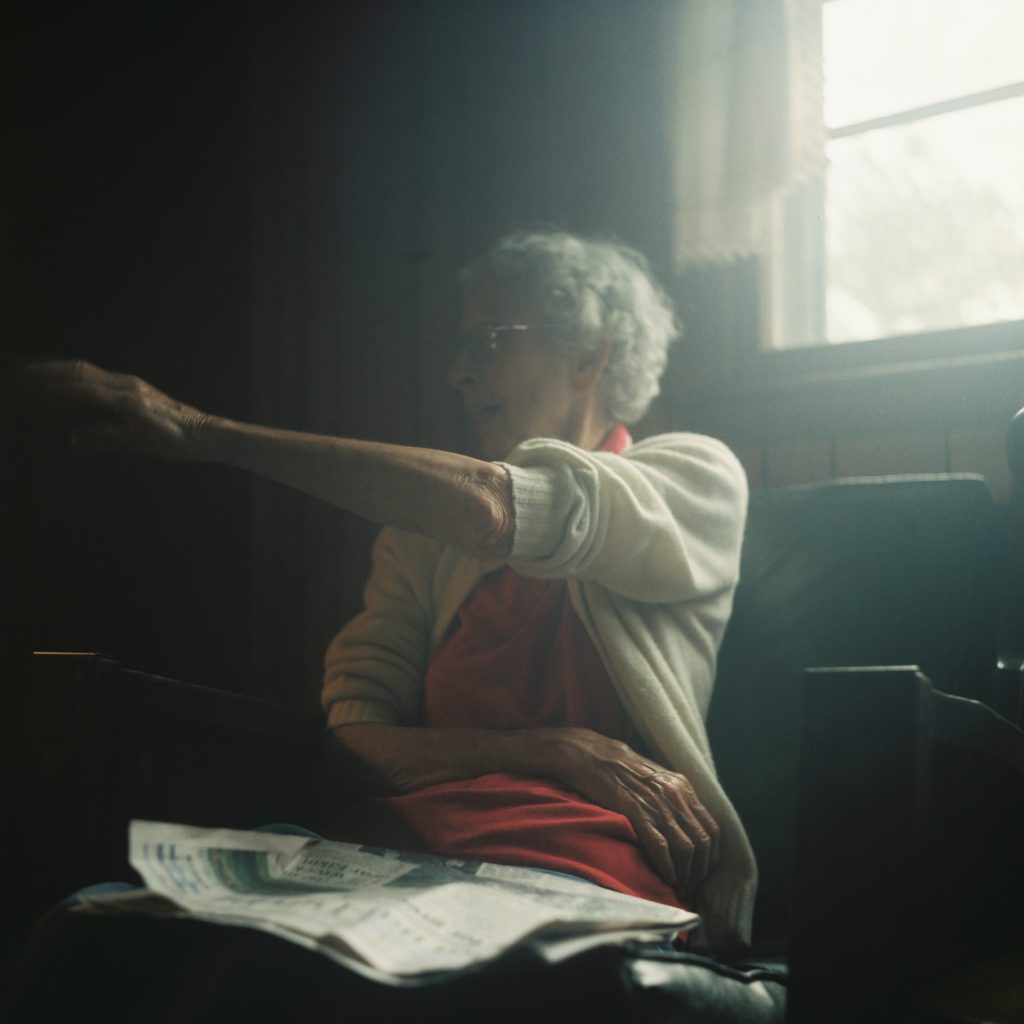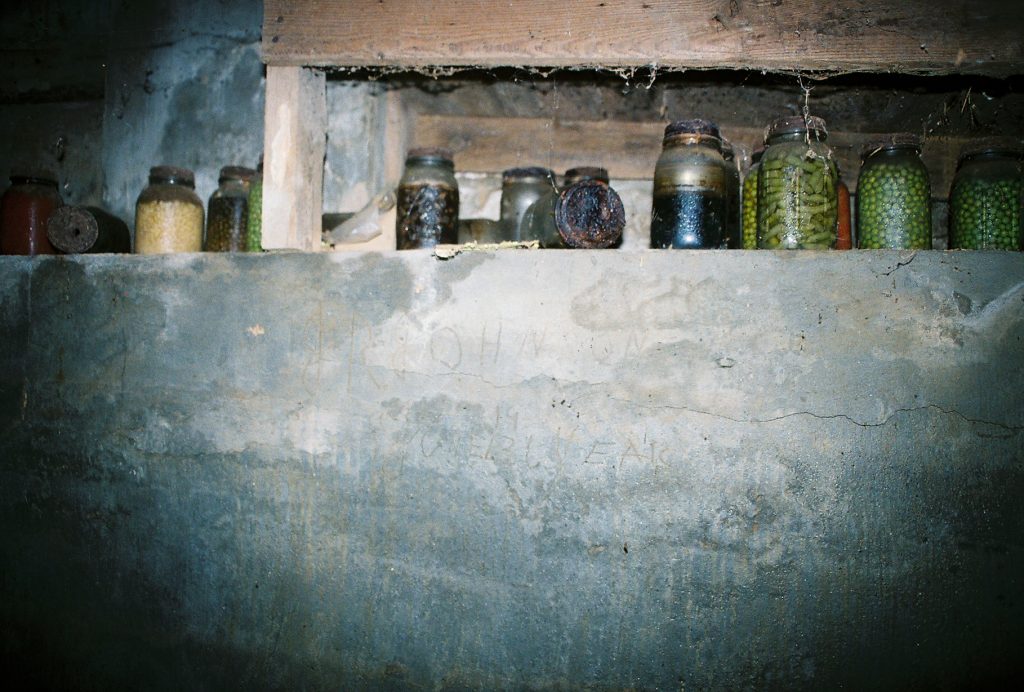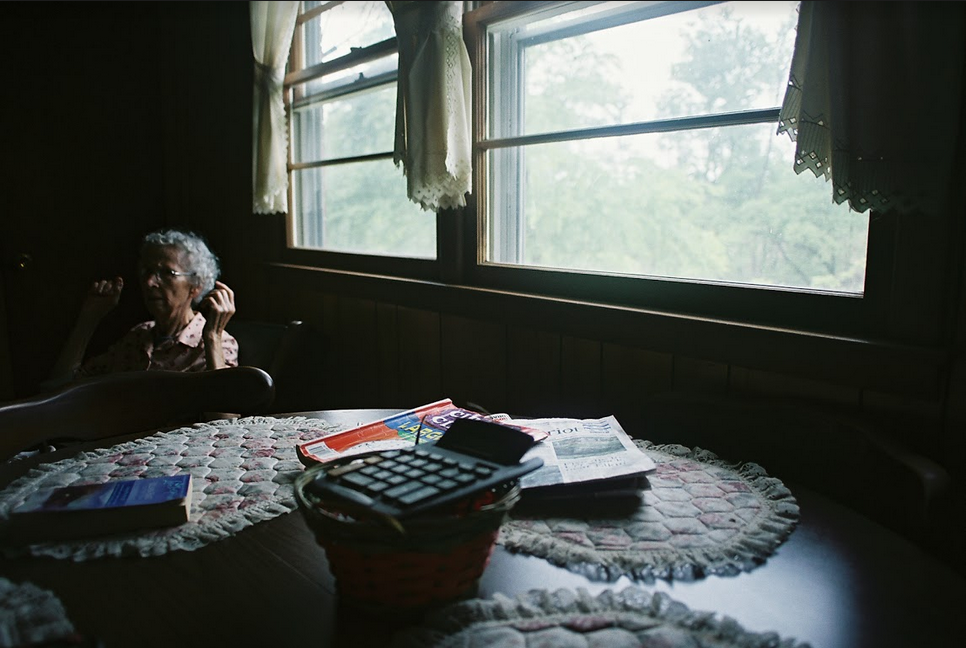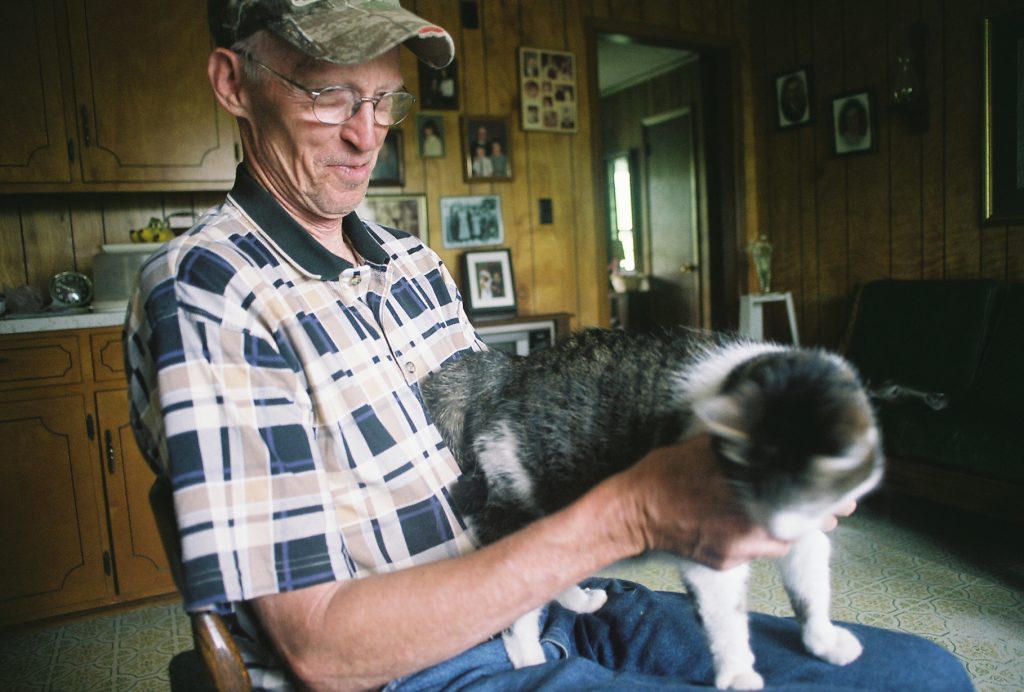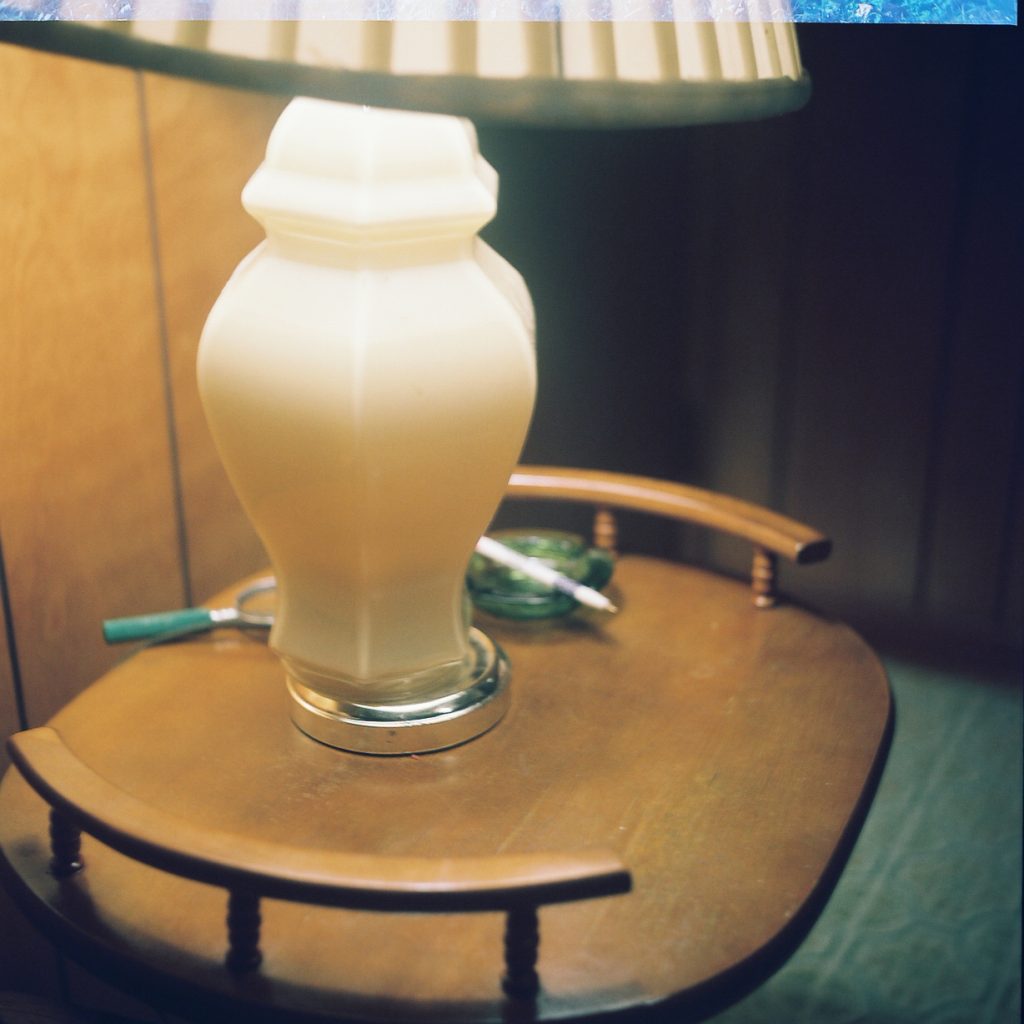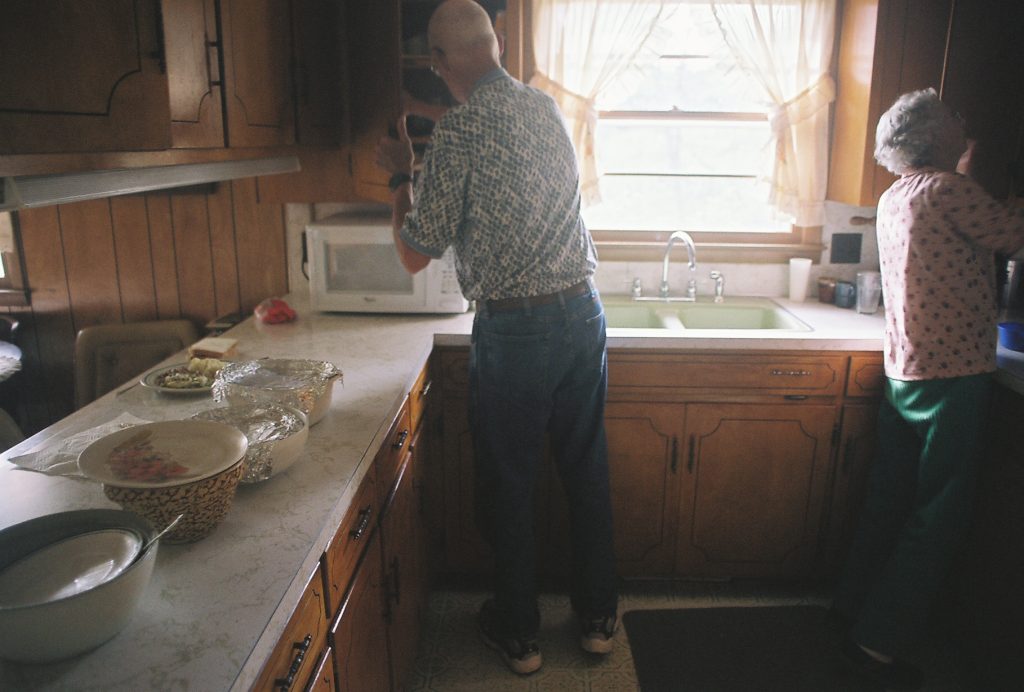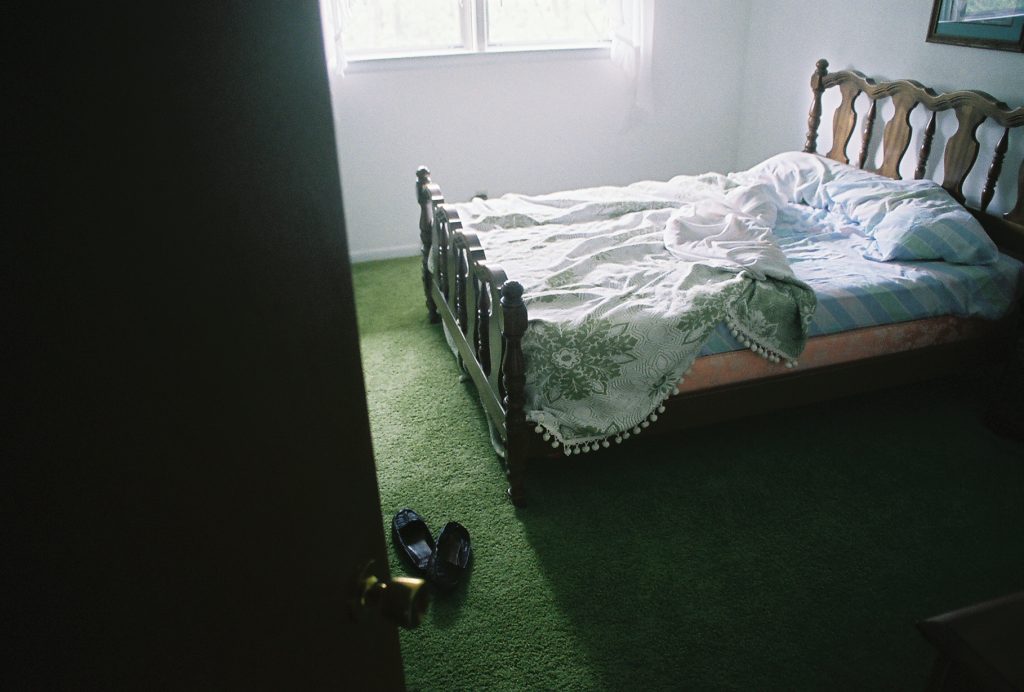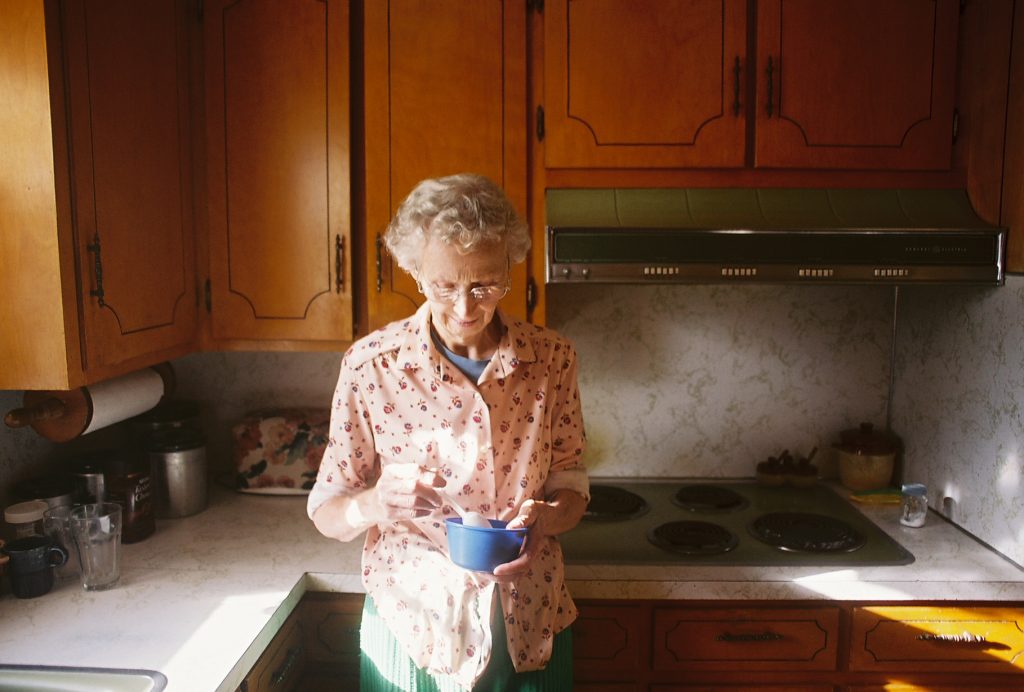“When we were young’uns, we’d get out there and pitch horseshoes until it got dark. We’d go to the shows on the weekend but we had to go in the wagon. That was after Coma and I was married. We’d go to the drive-in or the Liberty. That’s about the only thing they had then. Coma loved to go to shows. They just charged him half price ‘cause he couldn’t hear it but he could see it. He liked Westerns awful good.”
— Evelyn Inez Call Johnson, my grandma
Windy Gap Road twists up Little Brushy Mountain, dense forest on all sides until you crest the top and feel like you’re driving right into the sky. Follow the road a short way until it crosses Cling Johnson Road, named for my great-grandfather, and at the very end, you’ll hit the Johnson homestead: a medium-sized ranch house built in 1973 when the small two-story clapboard house my grandfather built burned to the ground in an electrical fire. After my grandpa Coma died in 1992, my grandma Evelyn lived there alone—but also not alone, with my Uncle Harold, Aunt Melba, cousin Bryan and, later, his wife, Pamela, up the gravel road on the hill.
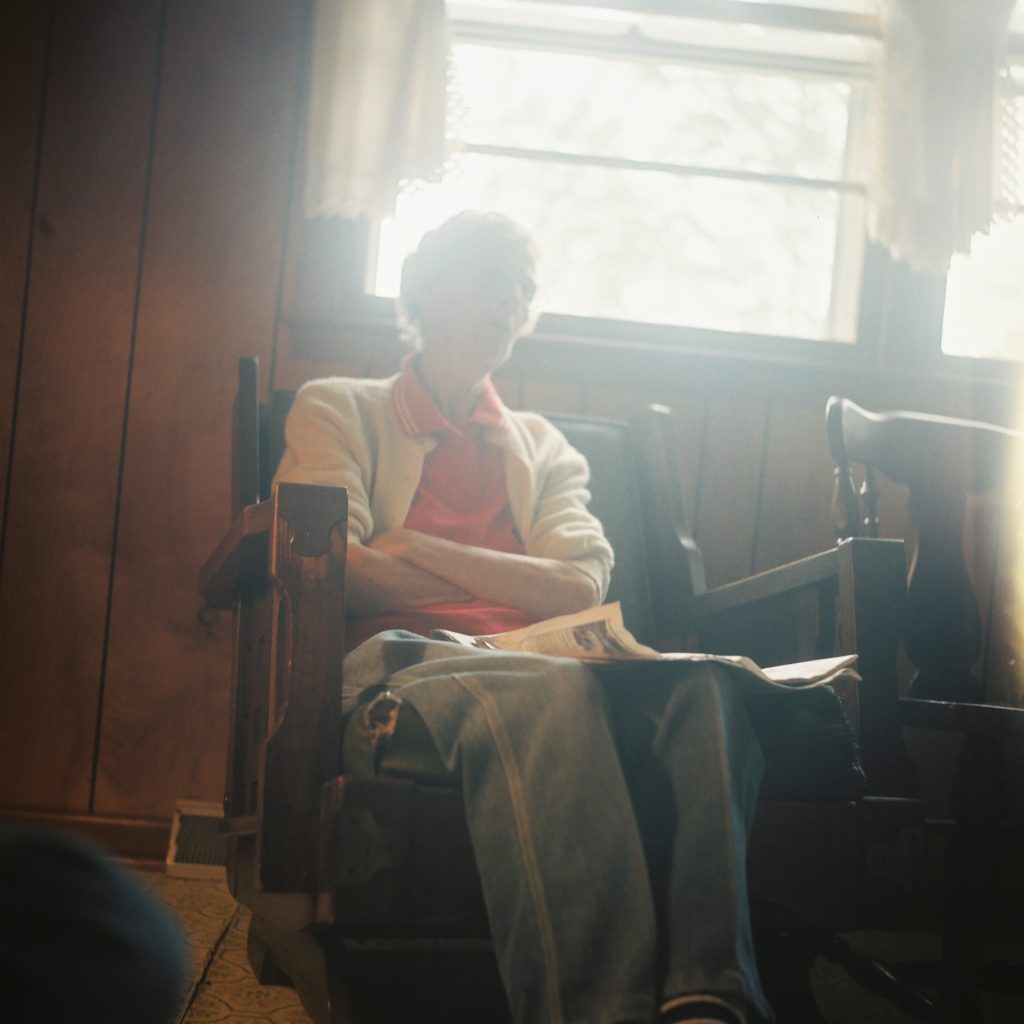
There’s a quiet here on top of the mountain, a stillness, especially since Grandma passed away a few years ago. She was hearing, as are Bryan and Pamela; Harold and Melba are Deaf. So is my dad, who lives an hour away. They communicate using a family sign language our family developed in the 1800s. They jokingly call it Johnson Family Sign, fingerspelled “JSL,” though everyone but my grandma knows American Sign Language (ASL), too.
So it’s quiet. The spit and crackle of the fire being poked, the clang of the metal stove door closing, slippers shuffling on the kitchen linoleum, fork against bowl while beating an egg, whispered half-speech alongside the signing, a quick double stomping of the foot, creating a vibration to draw the attention of someone across the room; those are the sounds my hearing family members and I experience. Our Deaf family members experience sound as vibrations from thunder claps, slammed doors, bass lines from loud music, large trucks passing by or planes flying overhead. My great grandmother Minnie only discovered her fourth child, Gilbert, was hearing after seeing him flinch at the sound of a frying pan she dropped on the floor when he was two or three years old. Until then, they’d only used sign language in the house, assuming he was Deaf just like his older siblings and my great grandfather. Minnie, who was hearing, started speaking to him right away.
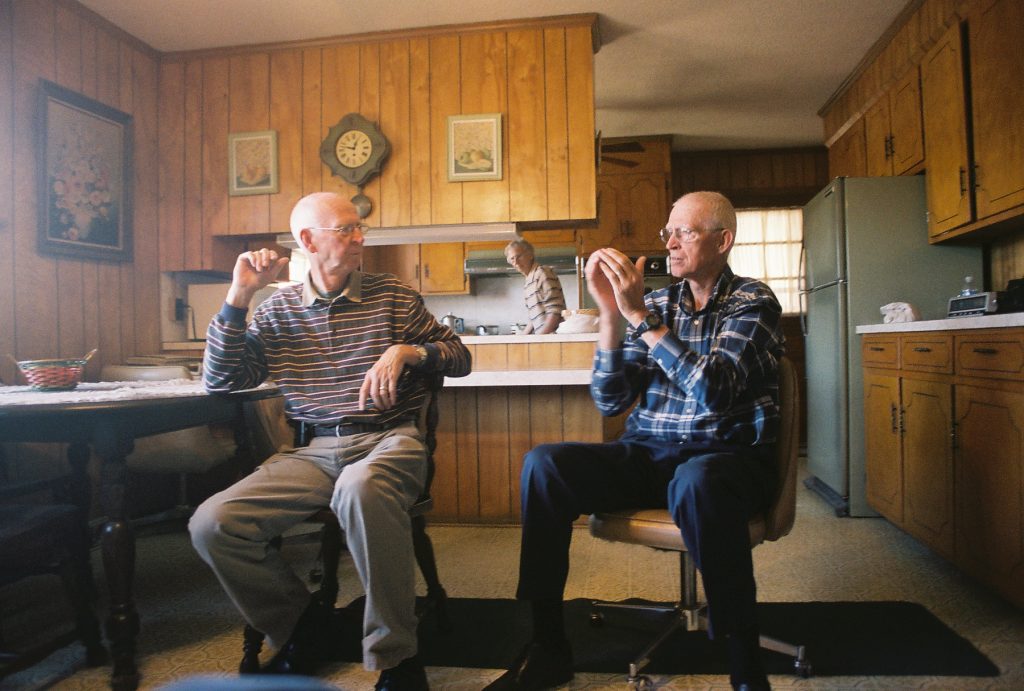
“Dad’d buy 100 pounds of pintos every fall and 50 pounds of white beans and they’d last all winter and up into the spring and summer. There was seven of us kids.”
It wasn’t always quiet. Or not always this quiet. There were more houses dotting the fields. There were cows, mules, pigs, chickens, rabbits, ducks, and guinea hens. There were brothers, sisters, parents, in-laws, kids roaming. About half were Deaf, but they all knew how to sign the family sign language so there wasn’t an “us” and “them.” It was just family. There were more bodies, so there was more sound, and more movement: fields plowed, animals tended, gardens planted, roads trudged up and down. There was more talking, singing, and signing too. In the family sign language, an index finger pointed to your ear and quickly pointed away was the sign for “deaf”; for “hearing,” it was an index finger pointed to your ear accompanied by a nodding of the head.
There were corn-husking parties and afternoon breaks at the swimming hole and porch sitting in the twilight and still-watching out deep in the woods. That’s a part of my family history, too: moonshining. For struggling small farmers in Wilkes County at that time, it was the only way to bring in any money at all. My grandpa was tending the still the night Grandma went into labor with my dad. She had no way to call for him way out in the woods in the dark so her sister-in-law came to stay with her until dawn when Grandpa returned home and immediately ran out to get the doctor. She told me that she just held the baby in until he got there.

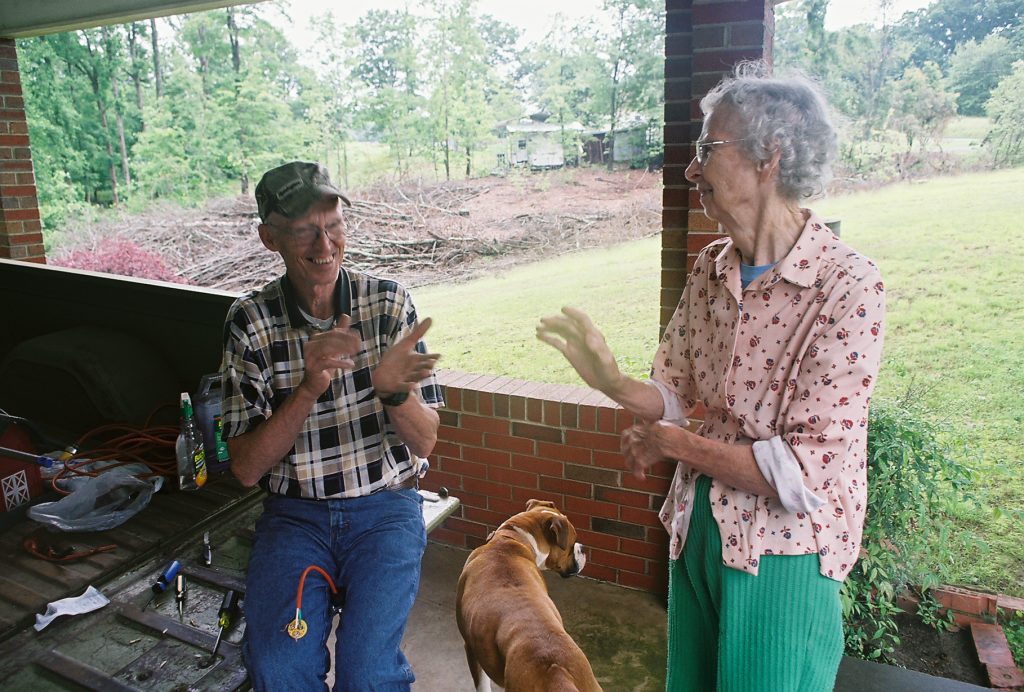
Grandpa was born in 1918. His generation was the first to go to school, and the first to learn ASL and bring it back to Windy Gap Road. His father drove him and his Deaf brothers from their home in Wilkesboro to the North Carolina School for the Deaf (NCSD) in Morganton in a covered wagon, a trip that’s an hour’s drive today but back then could take two days each way. If the creek water rose, they had to delay the trip until they could cross safely. When my dad and uncle started school in the late 1940s, they were dropped off in a 1936 Ford pickup. Like all NCSD students then, they only came home for holidays and summers. But on special weekends my grandparents took them on family trips to nearby Lake James and Blowing Rock.
“We had a little garden every year. I remember, I can see it now—Coma’s daddy coming across the field—and he showed us where we could put the garden, gave us a little plot of land where he used to plant corn. We had one there ever since, in that same spot.”
On the farm, Grandpa kept cows, chickens, and, his favorite, pigs. During the day you’d find him walking the fields in his coveralls and Red Man tobacco cap. Evenings, he’d be in his green vinyl rocker, chewing tobacco and reading the paper. Grandma always had a huge vegetable garden and a flower plot filled with dahlias the size of your head. She worked at the poultry plant in town for thirty-two years to supplement their income from the farm, inspecting chickens on the line, starting her days at five in the morning. Saturdays and Sundays, she’d cook enough for two or three days and do her washing and cleaning. She saved up to buy Christmas gifts for Dad and Harold, like the aquamarine birthstone ring Dad still wears to remember her.
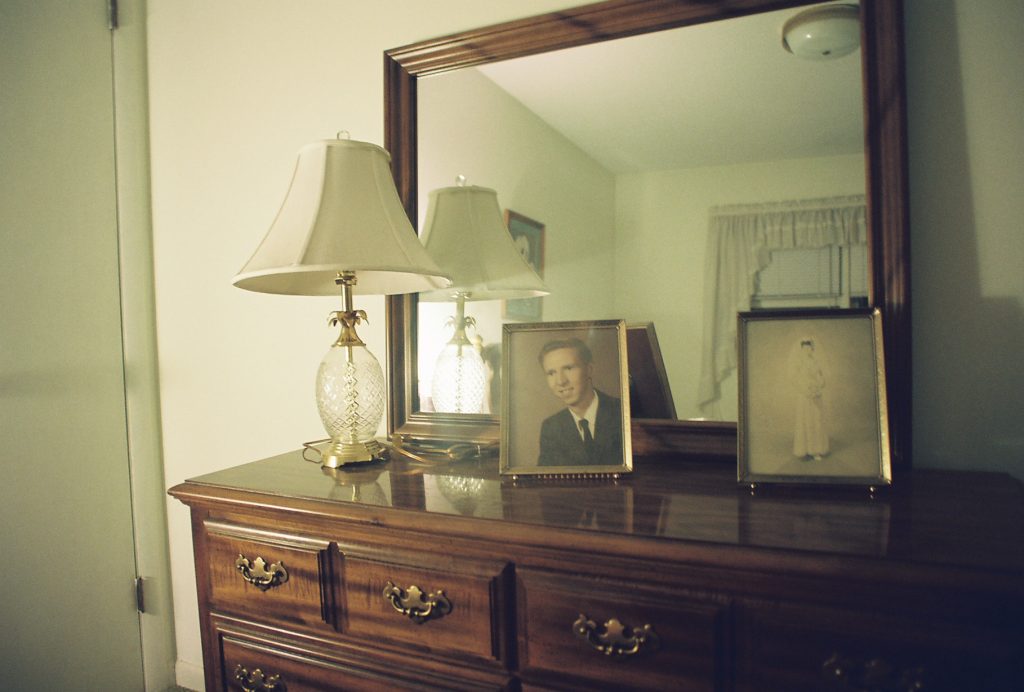
Grandpa and Grandma still used JSL to communicate, and my dad and uncle would revert to using it on the farm, too. It just felt natural there and so tied to my family’s history. The sign for going to town was a turn of the hand in the motion of turning a key in a lock, as in, the only time you’d need to lock your house would be to leave the farm. Signs for days of the week corresponded to the weekly activities on the farm. A washing motion was used for Saturday because it’s the day they got cleaned up to go to church on Sunday. The sign for Thursday looks like the motion of writing; that’s the day my great-great-grandparents were married and had to sign the marriage license. Though my sister and I learned to sign ASL the same time we learned to talk, we never learned JSL. I can pick out a few words from watching post-dinner signing—delicious, hot, cold, hard work, tired—but not enough to hold a full conversation. My cousin Bryan will be the last in our family to do that.
Interestingly, JSL is more similar in structure to ASL than to English. In both JSL and ASL, there are no auxillary verbs—is, are, were—and no articles – a, an, the. The “what,” or subject, comes before the description; while in English you might say “I am sick,” in both JSL and ASL it would be signed as “me sick me.”
Like any language, JSL evolved over time. With the invention of cars, a steering wheel motion was used to sign car or driving. And because cars were such a life-changing development, each new model of car had its own sign. A cranking motion was used for Ford, a ram horn for Dodge, a feather symbol for Pontiac. TV was signed as two hands waving in front of your face; movie was the sign for TV combined with the sign for going to town. Until 1918, there wasn’t a sign for Germany, but once World War I started and was ever present in the news, JSL adopted the ASL sign for Germany. There was still no sign for ocean. Because our family didn’t leave the mountain, it wasn’t necessary.
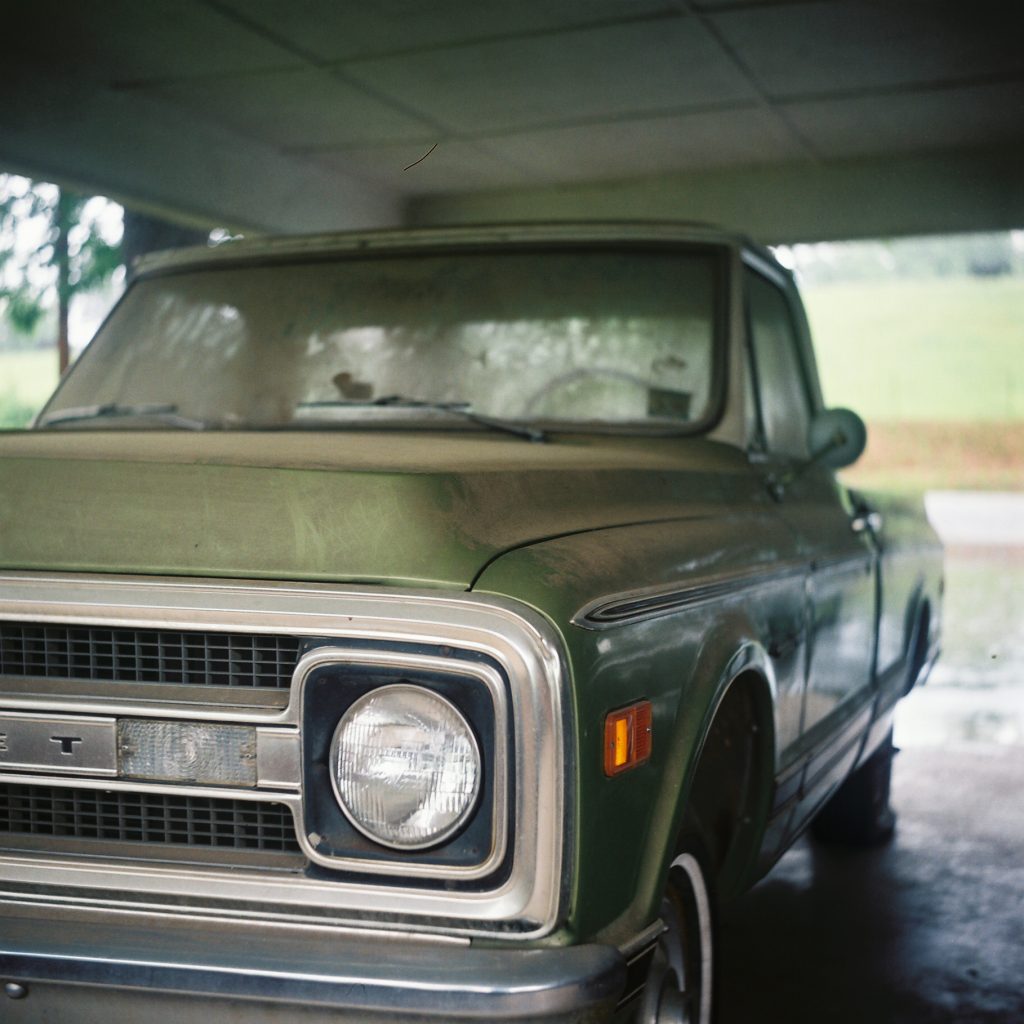
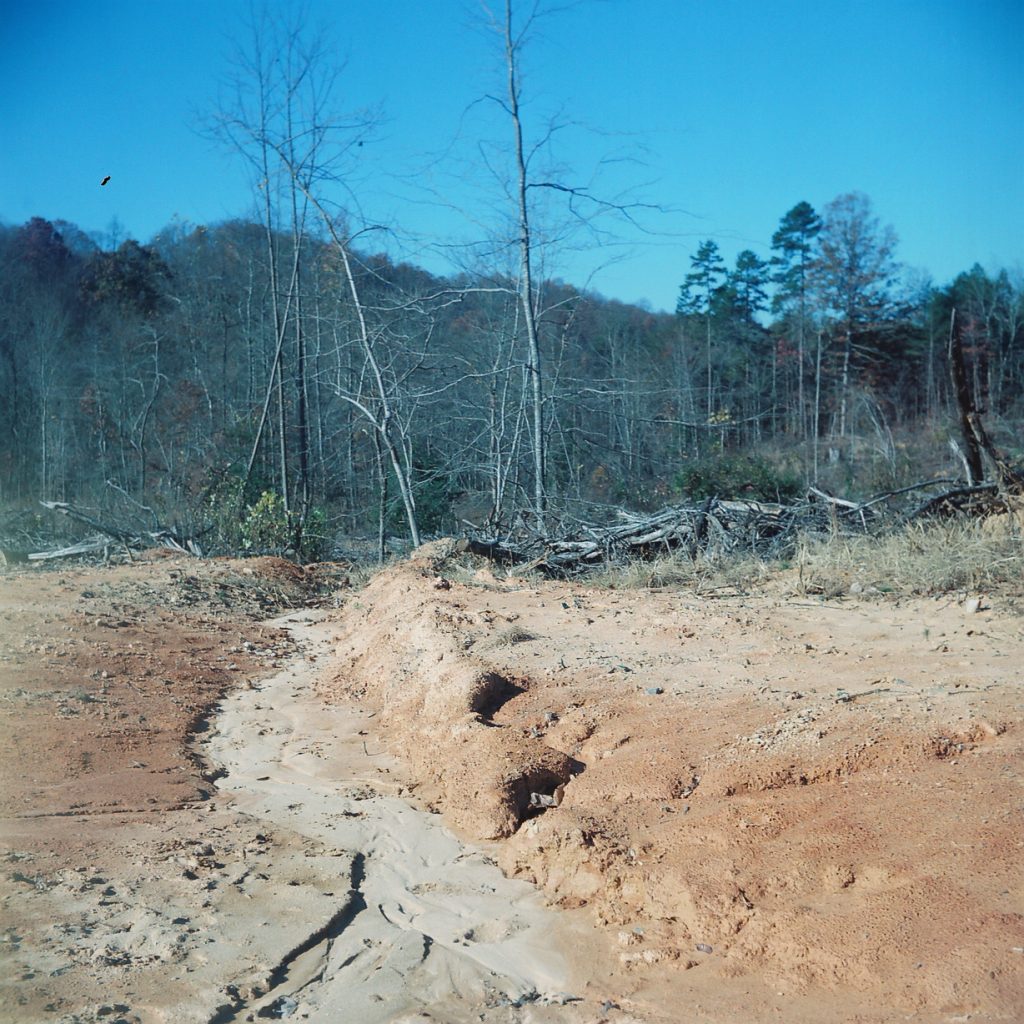
“I like to get out . . . get my wood in and everything. When I can tell I’m getting tired, I quit.”
When Grandpa died of emphysema, Grandma had been retired from Holly Farms for a few years and was home. After he passed, she kept on. Her house was quiet in a new way now with just her there. The soft padding of her Keds on the basement stairs to put up her canning, the sharp hiss of her iron as she starched her white lace curtains, the gurgle of pipes as the well water she bragged on poured from her kitchen faucet, the hum of the vacuum as she etched clean lines in the bright red, yellow, and blue-carpeted bedrooms, which met in a gold carpeted hallway in the middle. She’d remark on how she couldn’t sit still. She tended her flowers, helped Harold get the wood in, took in a stray cat, kept neat stacks of the Winston-Salem Journal and National Enquirer on the counter, made the best biscuits and gravy I’ve ever tasted.
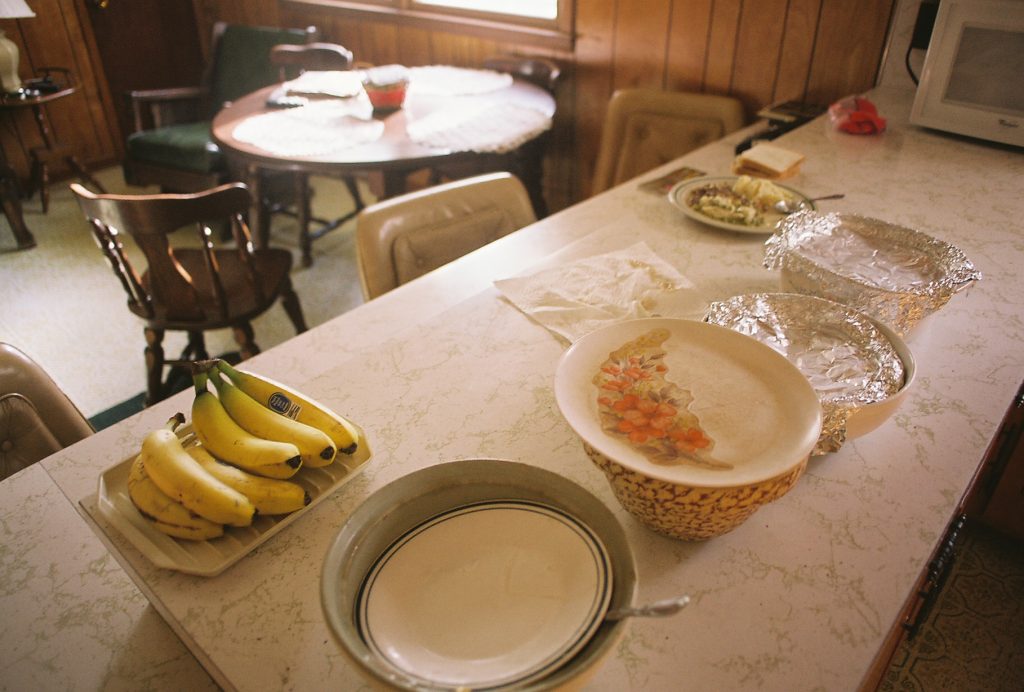
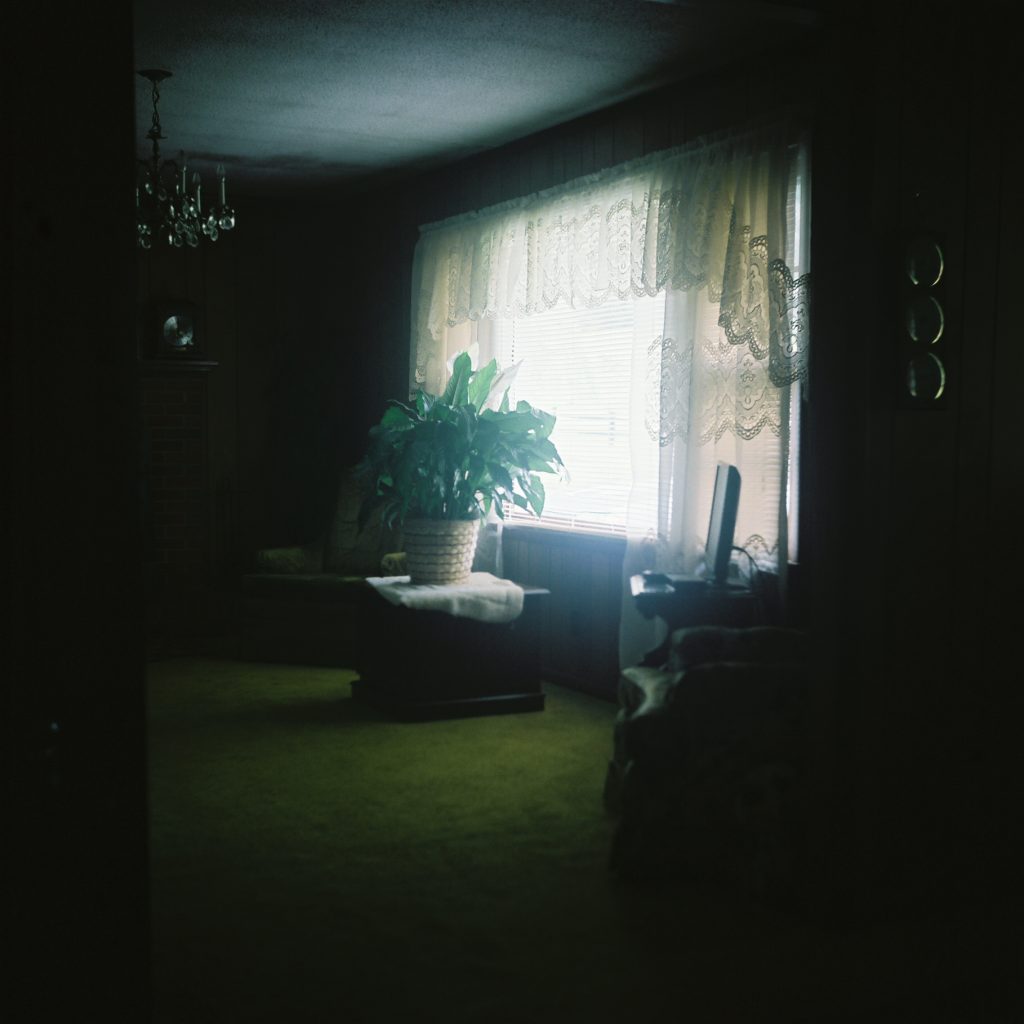
Grandma always seemed excited to talk when she had visitors. She’d take a while to warm up, her voice scratchy at first, before bursting into stories we’d heard over and over before. It was like she missed using her voice, just needed to hear that it still worked. I loved her particular turns of phrase, her lyrical mountain accent something to get used to each time we drove up the long dusty road and met on the carport by Grandpa’s ’69 Chevy pickup covered in a decades-old layer of dirt. “Awww,” she’d start most sentences. “Awww . . . Those dogs from down by Jimmy’s keep coming around here and my cat does not like it one bit.”
On one overnight visit my sister and I made in our twenties, we watched the local news and Matlock with Grandma in the small den and talked together for a while before she went to bed, the insistent tick of her pendulum wall clock filling the silences. There was no air conditioning, so we opened the windows in her side-by-side guest rooms to fight off the June heat. Expecting quiet to read myself to sleep, I was surprised by how loud the outside sounds floating through the windows were: cicadas, bullfrogs, coyotes, and other strange animal sounds echoing across the holler over the heavy night air.
“Guess what I’ve got to eat tomorrow? Got me a pot of black-eyed peas. I wash ’em before I go to bed, put in a piece of meat. Get up in the morning and wash them again, then cook ’em about an hour and a half. Put hot pepper in ’em. They’re better than those ones you buy. Today, I had green beans and corn, a few potatoes, and a little lettuce.”
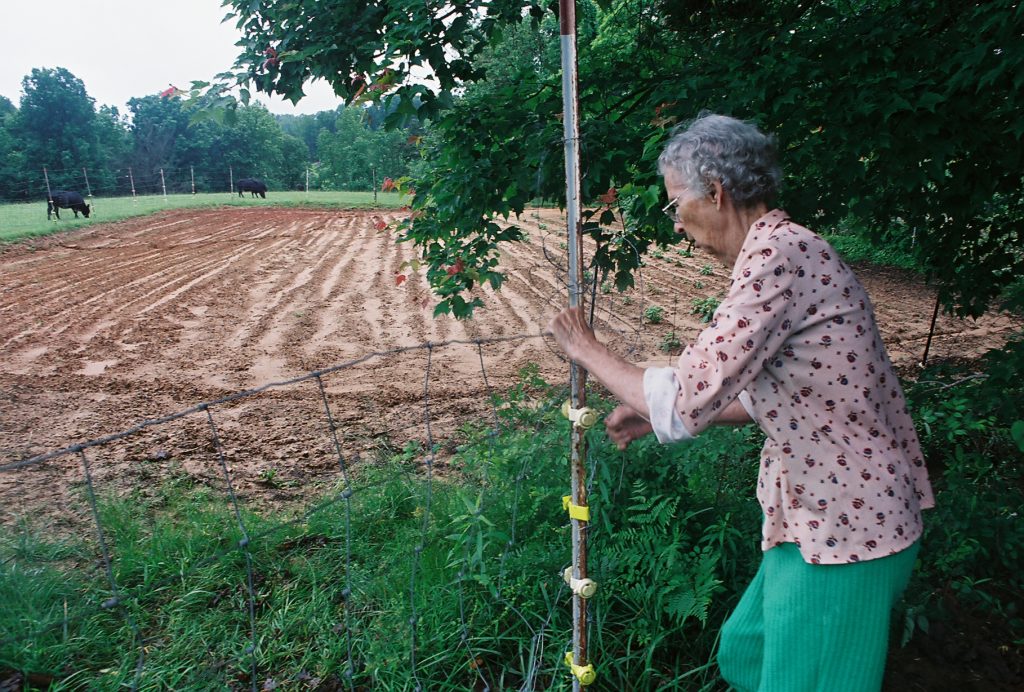
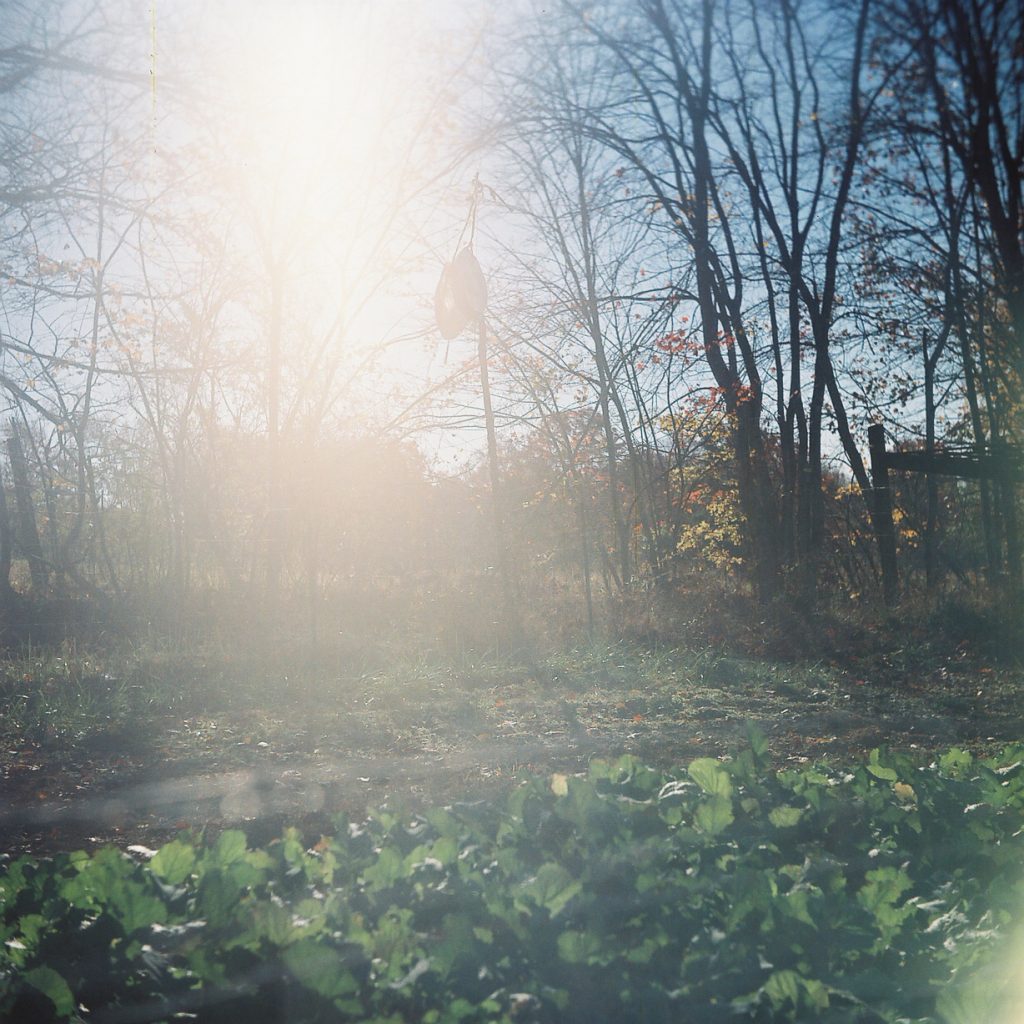
My aunt and uncle moved into Grandma’s house to help out before she died. After her passing, they went through her clothes and photo albums, uncovering old memories and stories of her, Grandpa, and the farm—little things we’d forgotten—giving things to me and my sister, deciding what to keep. Bryan and Pamela, just up the hill, are planting gardens, building a greenhouse, raising chickens of their own, hosting family dinners and football-watching parties. Now, new sounds vibrate off the walls, drift across the pastures, rumble out of truck windows.
There are still signs all around of life on the mountain before. Small sheds built into the hillside hold shelves of cloudy jars, tops rusting. My parents’ framed wedding portraits fade in the afternoon sun that streams through the guest bedroom windows. Old farm equipment stands at full attention in the barn. Overgrown fields start to forget the cows that used to roam them, the houses that once stood there. I find myself missing the life that was there, that came before me, the people and the animals and the way it used to be. But I’m thankful that life moves on, that the land is still lived on, that the sounds, silences, and vibrations of Windy Gap Road carry on.
